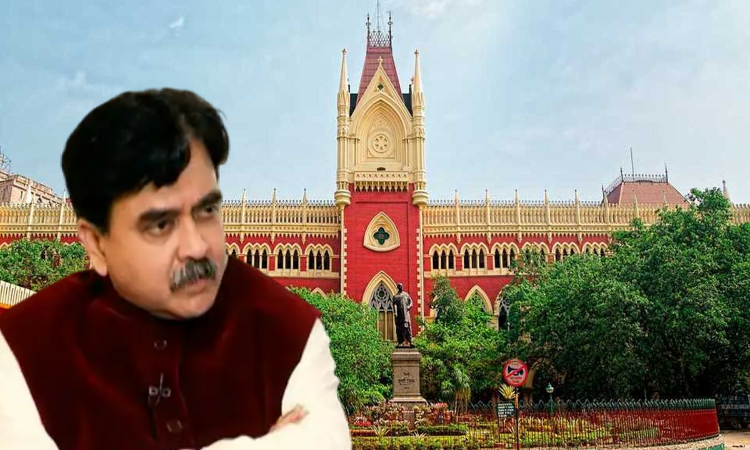Justice Abhijit Gangopadhyay: Calcutta High Court Judge With Penchant For Courting Controversies
Srinjoy Das
26 Jan 2024 1:28 PM IST

Recently, Calcutta High Court judge, Justice Abhijit Gangopadhyay stirred controversy when he ignored and declared illegal an order of a division bench presided over by Justice Soumen Sen, who had stayed the single judge's order for a CBI probe into medical admission irregularities in West Bengal.
Justice Soumen Sen, a senior judge, presided over a division bench also comprising Justice Uday Kumar, and stayed the single bench's verdict upon noting that no opportunity was given to the State to show their progress in the investigation, the prayers in the original writ petition had not sought for a CBI probe and that transfer of investigation could not take place 'lightly.'
However, in calling the division bench's order void ab initio, Justice Gangopadhyay labelled Justice Sen's actions as 'misconduct' and in his order accused the senior judge of allegedly harbouring political bias in favour of the State's ruling dispensation.
Judicial indiscipline and the principle of 'stare decisis'
In India's legal system, which is modelled around the common-law framework, judicial officers and judges have been traditionally expected to follow the principles of stare decisis, which literally translates to to stand by things decided.
This essentially means, that courts refer to previous, similar legal issues to guide their decisions known as 'precedents' to guide future decision-making. This doctrine makes an obligation for courts to refer to precedents when arriving at a verdict, and show reverence to the verdict of a larger bench or a higher court when doing so as well.
Notably, while Article 141 of the Constitution emphatically lays down that the law decreed by the Supreme Court shall be binding on all subordinate courts, there exists no statutory or constitutional restriction on a single-bench overruling the verdict of a division bench.
This would, however, fall within the category of judicial indiscipline. While there exists little precedent regarding the violation of division bench orders by a single bench of the same High Court, the Supreme Court had very recently in the case of Mary Pushpam v Telvi Curusumary 2024 LiveLaw (SC) 12, laid down that the rule of 'Judicial Discipline and Propriety' and the Doctrine of precedents has a merit of promoting certainty and consistency in judicial decision providing assurance to individuals as to the consequences of their actions.”
In that case, a division bench of Justices Rajesh Bindal and Vikram Nath had elaborated that when a decision of a coordinate bench of the same HC is brought to the notice of the bench, it is to be respected and binding, and the only course of action for a bench of co-equal strength is to take a different view and refer the question to a larger bench.
In this case, the strength of the division bench, in appeal, clearly superseded that of the single bench, and by calling for ignorance of the division bench, it may be concluded that the single bench has fallen afoul of the tenets of judicial discipline.
While the principles of judicial indiscipline are well defined vis-a-vis the Supreme Court, High Courts, and subordinate judiciary, it remains to be seen how the principle is applied in the case of irreverence being shown to a division-bench verdict by a single-bench of the same court.
Justice Abhijit Gangopadhyay and courting controversy
Notably, this is not the first time Justice Abhijit Gangopadhyay has been in the news for a judicial order passed by him.
Early in 2023, the judge was hauled up by the Supreme Court for giving an interview to a local Bengali news channel regarding the infamous cash-for-jobs scam in West Bengal.
In its order, the SC had observed that sitting judges of High Court's had no business giving TV interviews. The SC had also directed Calcutta HC CJ TS Sivagnanam to re-assign all pending proceedings in the recruitment scam before Justice Gangopadhyay to another bench.
In response, Justice Gangopadhyay held court and passed a suo moto order directing the Secretary General of the Supreme Court to place before the SC a translated version of his TV interview, perhaps in an attempt to vindicate its content.
In staying the aforesaid order, the Supreme Court noted that "the order of the present nature ought not to have been passed in a judicial proceeding, more so, keeping in view of judicial discipline"
CJI DY Chandrachud on that occasion had remarked that the transcript of the interview had well justified the SC order.
In another instance of being embroiled in controversy, Justice Gangopadhyay had recently directed the immediate arrest of a lawyer from his courtroom for alleged criminal contempt and caused the lawyer to be taken into custody by the Sheriff from within the courtroom.
In response to this, the Calcutta High Court Bar Association passed an urgent resolution, calling for the immediate withdrawal of all judicial work from Justice Gangopadhyay till an apology was forthcoming.
The judge, who has remained critical of the West Bengal ruling dispensation's role in the recruitment 'cash-for-jobs' scam had also, in 2023, passed an order dismissing a TET candidate's plea against the recruitment process, after she failed to correctly spell the word 'Durga' in Bengali in his courtroom.
Unusually, this is not the first time Justice Gangopadhyay has taken on a division bench, as in 2022, he had objected to the decision of a division bench of Justice Harish Tandon and Justice Rabindranath Samanta for accepting a document in a sealed cover in the SSC recruitment irregularity matter.
This also subsequently led to a heated exchange between the judge and other lawyers when the judge allowed journalists to take video recordings of court proceedings pertaining to the illegal appointment of teachers in the state-run schools of West Bengal.


